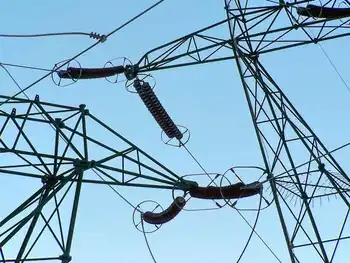Three Schools Launch Project to Build Solar Home
By Electricity Forum
Arc Flash Training CSA Z462 - Electrical Safety Essentials
Our customized live online or in‑person group training can be delivered to your staff at your location.

- Live Online
- 6 hours Instructor-led
- Group Training Available
Joined by students from all three schools, the presidents of Mount Royal College, SAIT Polytechnic, and the University of Calgary signed an agreement officially launching the Alberta Solar Decathlon Project. It is the first student-led, collaborative, energy-and-environment project involving the three post-secondary institutions.
“We want to create a legacy in Alberta,” says student Mark Blackwell, Project Co-Chair. “A key goal of this project is to inform and educate the public on how solar technologies can be readily and affordably integrated into housing development.”
The students aim to become the first-ever western Canadian team to enter the 2009 Solar Decathlon competition, in which 20 teams of university and college students from around the world are chosen to design, build and operate the most energy-efficient solar-powered home.
Sponsored mainly by the U.S. Department of Energy, the competition takes place every two years on the National Mall in Washington, D.C. and attracts thousands of visitors and widespread media attention.
“The University of Calgary believes strongly in experiential learning to enhance students’ education,” says U of C President Harvey Weingarten. “Teams involved in the Solar Decathlon get invaluable hands-on experience, not just in the design and engineering aspects of building their solar home, but in business management, fundraising, marketing, communications and logistics.”
“The new knowledge created by students in the next two years will be integrated into our programs in the future,” says Irene Lewis, President and CEO of SAIT Polytechnic.
“Theories will be practically applied as students design and build this solar-powered house.”
“Mount Royal is continually focused on a fresh and distinctive approach to student-centred undergraduate education and to increasing its level of applied research. This project is a great example of pulling together all of our strengths and combining them with the strengths at other institutions to create something truly innovative,” says Mount Royal College President David Marshall.
The Alberta Solar Decathlon Project has already attracted more than $18,000 in seed funding, including $11,300 from the Shell Experiential Energy Learning program and a $7,000 contribution from Alberta Advanced Education and Technology. Students are gearing up to approach other potential private- and public-sector partners for the ambitious, two-year project, which has a budget of about $900,000.
The Alberta Solar Decathlon team also unveiled its conceptual design for the home at the official launch. It features state-of-the-art solar photovoltaic (solar electric) technology with a unique design incorporating the ‘elements’ of wood, water, stone and light – reflecting Alberta’s connections to the land. The home seamlessly integrates sustainability, solar design principles and technologies into an environment that provides space for people to live, work and play.
The Alberta team will submit its solar home proposal by the end of this year to enter the 2009 Solar Decathlon competition. Successful entrants are awarded a total of US$100,000 over two years by the contest organizers.











